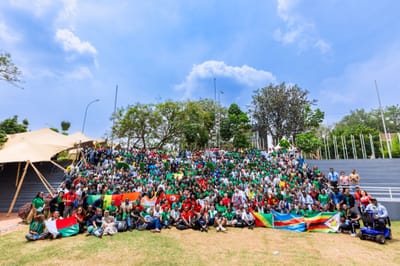South African private equity (PE) and venture capital (VC) activity is improving after Covid-induced uncertainty, with industry players reporting an increase in transactions. Some notable trends have emerged and are expected to accelerate into the remainder of 2022. The investment environment in South Africa has improved following the disruption caused by the outbreak of COVID-19 and the riots of July 2021.
The uncertainty brought about by the pandemic created a major headwind for PE and VC in South Africa. The SAVCA 2021 Private Equity Industry Survey revealed that fundraising, investments and exits all contracted in 2020 but we expect this to have reversed in 2021 and to improve even further in 2022 as economic conditions slowly recover.
COVID-related international travel restrictions were a significant hurdle for the industry. With the restrictions now largely lifted, investors can resume site visits to conduct a thorough due diligence of investment opportunities. I think this will have a huge impact on fundraising and deal-making for the rest of the year.
While the statistics for South Africa’s PE and VC industry activity in 2021 have yet to be released, on a global basis, 2021 is likely to have been a record year for fundraising. According to an EY report for H1 2021, $365.8 billion worth of funds had already been raised by 30 June 2021 – pointing to a significant improvement when compared to the $533.9 billion that was raised during the whole of 2020.
The overarching theme of our 2021 SAVCA conferences was re-imagining the contribution VC and PE can make in rebuilding our economy – they have the power to address some of South Africa’s biggest social challenges.
"While the statistics for South Africa’s PE and VC industry activity in 2021 have yet to be released, on a global basis, 2021 is likely to have been a record year for fundraising."
Take-privates to accelerate
Looking ahead to 2022, one of the key trends we’re likely to see more of is private equity funds buying either portions of listed South African businesses or entire companies and de-listing them from the stock exchange. This is according to Lydia Shadrach-Razzino, corporate commercial executive at law firm ENSafrica.
For example, Old Mutual Private Equity (OMPE) made an offer to acquire JSE-listed Long4Life, owner of several lifestyle businesses, and to delist the company from the bourse. There are also a number of public companies getting rid of non-core assets to private equity,” she adds, pointing to ENSAfrica’s advising JSE-listed Ascendis Health on the recent sale of its animal health division to Acorn Private Equity.
The JSE’s latest financial results revealed 25 companies delisted from the JSE in 2021 alone.
Jacci Myburgh, co-head of OMPE said that after a strong run, there is rising uncertainty as to where listed markets are going to from here, and investors with foresight are becoming much more interested in private equity again.
Disposal of existing assets driving infrastructure deal flow
The disposal of existing assets accounted for the majority of deal flow in the infrastructure sector due to relatively few new government-initiated projects. The recent infrastructural devastation which was caused by heavy rainfall and flooding in KwaZulu-Natal shows an increasing need for infrastructure investment in South Africa. This topic will be played out in a debate at SAVCA's upcoming PE conference in May 2022.
Furthermore, digital infrastructure has become a sought-after asset.
Afrikan Infrastructure Investment Managers (AIIM) acquired a minority stake in South African fibre network carrier MetroFibre Networx; invested in a Ghanaian data centre business; and backed Eastcastle Infrastructure, a company specialising in Afrika’s telecoms tower sector.
Fintech venture capital the rising star
Van Lill also points to rising activity in the venture capital space, especially among Fintechs. “There is growing interest in South African start-ups from international VCs. We are expecting to see a lot more liquidity in the local VC market, driven by interest from international investors,” she says.
In 2021, South African start-ups attracted more than $800-million and there are a number of high-profile fintech deals that have been announced in 2022 so far.
Other highlights in this regard include Kalon Venture Partners’ follow-on investment in e-mail security platform Sendmarc; mobile marketing company Mobiz which raised an additional $4 million; and real estate platform Flow who is fundraising for international growth. Payments company Ozow’s recent $48 million series B funding round, led by Tencent, is another notable example.
It’s not really surprising that we’re seeing an explosion of interest in fintech venture capital given how tech-savvy our young but financially-underserved population is.
A secondary trend in this space is South African tech startups expanding internationally. For instance, Mobiz will use the money from its fundraising to expand to the US; Carscan, who uses artificial intelligence (AI) to scan vehicle damages and provide repair estimates, now has clients in countries such as India, the UAE, Nigeria and Kenya; and Sendmarc is already actively doing business in several Western countries.
The fintech space is quite exciting. There is a lot happening and I think we are going to see more of it in 2022.
Increased importance of ESG expertise
Investors the world over are increasingly recognising the importance of taking environmental, social and governance (ESG) factors into account in their investment decisions. The profoundly negative social impact of the pandemic has sharpened the focus on ESG issues and there is far greater interest in ESG best practice.
While many global fund managers are racing to ensure their compliance with best practice and implement ESG, South Africa’s PE industry has been incorporating these factors for many years. This has largely been due to the positive influence of development finance institutions (DFIs), who are significant investors in Afrikan funds.
Fund managers should leverage their ESG expertise to attract additional capital. “South African fund managers have years of experience of considering ESG factors in their investment decisions due, in no small part, to how important this is to DFIs. They will use this to their advantage and highlight their distinctive capabilities in this area, especially when competing with international peers.
A word of warning: higher interest rates a potential obstacle
While this all sounds positive for South Africa’s PE industry in 2022, Andrew Johnstone, CEO of Climate Fund Managers sounds a note of caution. “Rising interest rates in developed countries could temper enthusiasm for emerging markets.”
Vuyo Ntoi, joint managing director of African Infrastructure Investment Managers (AIIM) agrees. “Fund managers will have to show high returns as they compete for international capital in an environment of rising interest rates,” he warns.
These topics will be discussed and debated at the upcoming SAVCA Private Equity Conference, which is taking place on 25-26 May 2022 in the Western Cape.
We look forward to hosting our delegates and members at our conference this year where robust discussions around the current and future trends of the PE landscape will take place.
— By Tanya van Lill






